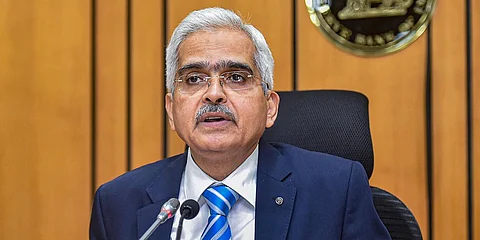

RBI Governor Shaktikanta Das on Saturday delivered the keynote address at the SBI Banking and Economics Conclave. The Governor spoke about the ongoing coronavirus crisis, calamities and the measures taken to propel a cyclical turnaround in economic activity.
Speaking on the hit economy took after the implementation of lockdown, he said that the Indian economy has started showing signs of going back to normalcy after easing of restrictions.
"COVID-19 is the worst health and economic crisis in the last 100 years with unprecedented negative consequences for output, jobs and well being. It dented the existing world order, global value chains, labour and capital movements across the globe," he added.
RBI has taken several measures to protect our financial system, support the economy in the current crisis, said the Governor.
Since February 2019, repo rate has been cut by 250 basis points. Repo rate is the rate at which the central bank lends money to commercial banks.
Between 2015-16 and 2019-20, the government had infused a total of Rs 3.08 lakh crore in public sector banks (PSBs). As a result, the overhang of stressed assets in the banking system declined and capital position improved.
On the impact of the virus, he revealed that coronavirus pandemic will result in high NPAs and capital erosion.
A recapitalisation plan for public and private sector banks has, therefore, become absolutely necessary, he said.
The Chief of apex bank said that the topmost priority for RBI is growth. He added that RBI policy action for the medium-term will require a careful assessment of how the crisis unfolds.
Stressing upon the need for countermeasures, "We need a structured mechanism with legal backing to deal with stressed assets," the RBI Governor said adding that building buffers and raising capital will be crucial not only to ensure credit flows but also to build resilience in the financial system.
He also said that Indian companies and industries respond better in a crisis.
Das said the RBI has strengthened its off-site surveillance mechanism to identify emerging risks and assess the vulnerabilities across the supervised entities for timely action.
"We are also working towards strengthening the supervisory market intelligence capabilities, with the help of both personal and technological intelligence."
(With agencies inputs)